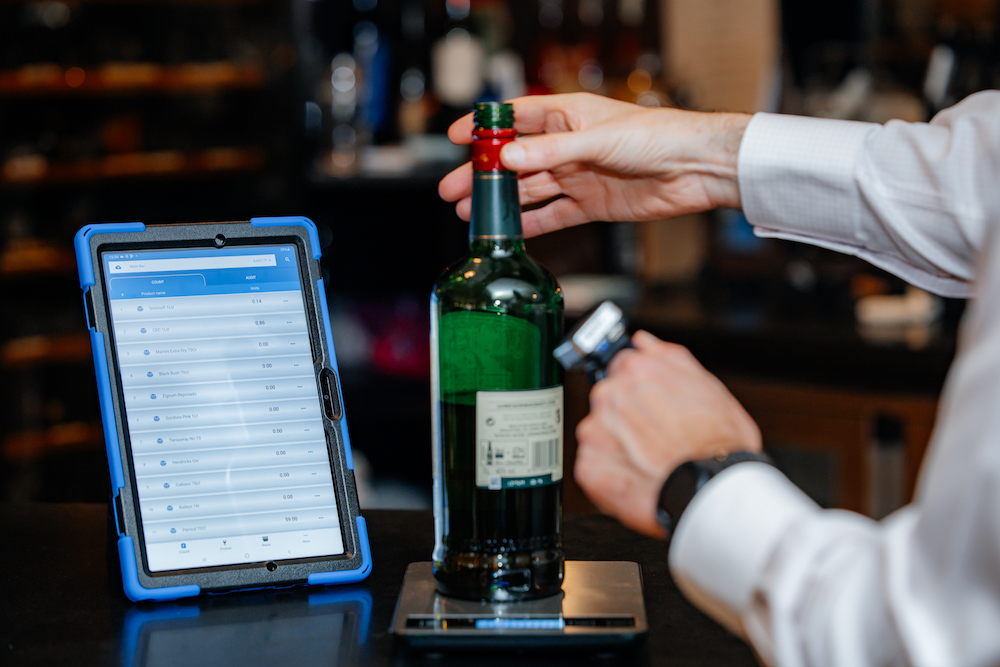For food service businesses, stocktaking can be boring, dull, complicated, and frustrating (although it doesn’t have to be!) and leads to arguments and hair-pulling when it’s not done well.
But managing your stock accurately is essential. The better you become at stocktaking and understanding the facts and figures, the more successful your business will be – while also reducing food waste and increasing your margins, leading to a healthier planet.
Podcast series Enterprising interviewed Patrick McDermott, CEO of stocktaking software DigiTally, who shared some of his insight from many years in the food service industry.
What is stock management?
“What’s measured is managed,” Patrick emphasises. “What tends to happen in the kitchen is that the workers will write down in a sloppy notebook that they’ve wasted X number of croissants and so many litres of soup and so on. By digitising that, the analysis of the data is much greater.”
In other words, to take the step from recording stock in your food service business to being able to manage it effectively, you have to turn that data into information that can be understood and digested.
“There are different categories of food waste, for example,” Patrick explains. “There is unavoidable waste – banana skins and tea bags; then there is overproduction – maybe you’ve peeled potatoes then not used them; and then there is plate waste – uneaten food. When you get an accurate record of what’s going in the bin, you can then try to understand that data. With that knowledge, you can then look to reduce the waste and gain more margin, more time and a healthier planet. ”
Patrick clarified the pitfalls of both overstocking and understocking.
- Overstocking
Over two million tonnes of perfectly good food goes in the bin each year in the UK alone. That figure is not only shocking to customers – but also a direct hit to the bank balance of businesses around the country.
Patrick says, “You need to have enough, but stock levels should be moving – remember, food is perishable. You should have up to five days stock – more than seven and food expires, you have waste, you have a loss in margin.”
- Understocking
Patrick says, “If you don’t have enough stock, and there’s a demand for it, then you can’t sell it. That means you are not making money and won’t achieve full sales”.
Furthermore, when a customer travels several miles for your famous cherry cheesecake to discover you have run out of cherries, they won’t be back!
Again, all this should be controlled and avoided through careful stocktaking and understanding the figures.

How to manage your stock
To avoid these scenarios, it’s time to get on top of your inventory.
Use technology targeted at stocktaking rather than the old-fashioned pen and paper and then battling through an excel file. This will relieve stress and can reduce errors by doing a lot of the brainwork automatically.
Patrick says that in his experience, when you start to record food waste accurately, “It’s like a bell curve. At the beginning, the wastage line goes up and up – it’s now being recorded, but it was always being wasted. Data goes into information, and we take it a step further to put that into information that you can take action on.”
He reminds us that once you start recording the data, your staff are not the problem – they are part of the solution. “At the end of a week, get your team together and say to them, This is what we are wasting – what do you think? How can we get from wasting 200 meals a week down to less than 100? Bit by bit, that curve will start to come down – but it’s your team that’s coming up with the solutions. You’re empowering them. But you can’t do that until you know the extent of the problem.”
Count your eggs – and then your chickens
Ensuring you have a robust stocktaking system is equivalent to checking that your boat has a watertight hull. Having a stocktaking method you are happy with, and that your staff are confident and comfortable contributors to, will allow you and the crew to concentrate on getting the wind in your sails!
To listen to the full interview with Patrick, check out the Enterprising Podcast on Spotify.
Finally, to find out more about how DigiTally could be an ideal partner to help you create an easy-to-use stock management system that ensures a solid hull for your food service business, then why not organise a chat with us today? Just click here to book a 30-minute chat with Patrick and ask about setting up a demo.



